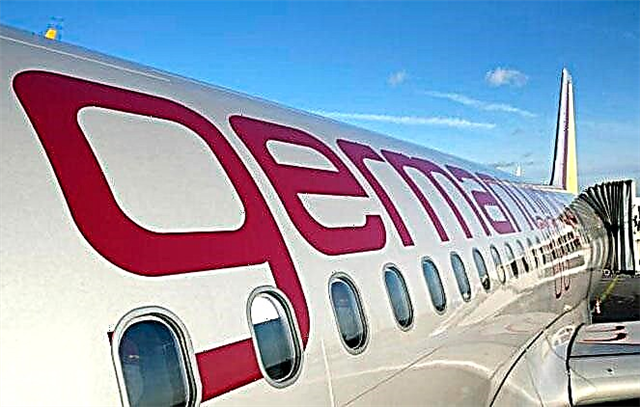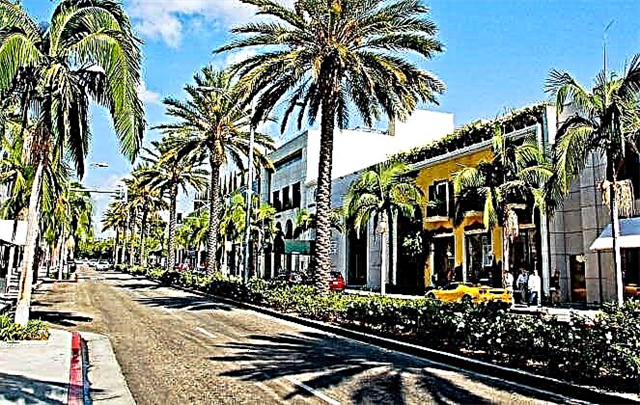If you are thinking of studying at one of the oldest higher education institutions in Europe, you will undoubtedly be interested in the Complutense University of Madrid. Studying here is not only a guarantee of excellent preparation in the chosen specialty, but also a lot of opportunities for research and scientific activities.

History of Complutense University of Madrid
The university was founded on May 20, 1293 by the Archbishop of Toledo Gonzalo Garcia Gudiel. On the basis of a license issued to him by Sancho IV of Castile, he established a school (Estudio De Escuelas Generales de Alcalá) in the city of Alcala de Henares. In 1499, this educational institution was transformed into a university by Archbishop Francisco Jimenez de Cisneros.
In the 17th century, the university went through a period of decline. However, as a result of subsequent reforms, he was able to turn into one of the most authoritative universities in Europe with unique archives, libraries, sports clubs and modern research centers.
Among the outstanding graduates of the Universidad Complutense de Madrid are two Nobel laureates - Severo Ochoa and Mario Vargas Llosa, winners of the Miguel de Cervantes award Francisco Ayala, María Zambrano, Dámaso Alonso, José García Nieto, Camilo Joséren Celate, Gonter Guillén.
Currently, the university offers foreign students training not only in Spanish, but also in English (bachelor's and postgraduate studies).
Contact details:
- Postal address: Universidad Complutense de Madrid, Avda. de Séneca, 2, Ciudad Universitaria, 28040 MADRID;
- Phone: +34 914 520 400;
- Email: [email protected];
- Official website: http://www.ucm.es.
Faculties and Departments of the Complutense University of Madrid
Currently, the university has 26 faculties and many departments in various specialties, the current list of which can be found by visiting the official website of the educational institution.
In 2021, applicants can apply to the following faculties:
- fine arts;
- biology;
- chemistry;
- trade and tourism;
- computer science and technology;
- dentistry;
- economics and business management;
- teaching-methodical and educational;
- geography and history;
- geology;
- linguistics;
- legal;
- library science;
- mathematical;
- sciences of media and communications;
- medical;
- pediatrics and pediatric physiotherapy;
- optics and optometry;
- pharmaceuticals;
- physics;
- political science and sociology;
- psychology;
- social work;
- statistics;
- veterinary medicine.
The university provides an even greater choice in terms of specific specialties. Art history, radiology, preventive medicine, biochemistry, microbiology, theoretical physics - this is not a complete list of areas in which the university conducts training of specialists, which is carried out by over 6 thousand teachers working in several dozen departments.
How to apply to the Complutense University of Madrid
There are several options for enrolling international students at Complutense University of Madrid:
- on a general basis after at least 1 year of study at a university at home;
- as invited exchange students after a year of study at home.
The package of documents for admission contains the following papers:
- valid national and foreign passport;
- long-term visa or residence permit of the applicant;
- 2 photographs of the established sample;
- summary;
- education grant (if any);
- confirmation of knowledge of the language (Spanish or English);
- proof of education (bachelor's degree) from the Spanish University of Distance Education (UNED);
- consent for admission from teachers / responsible persons for students of the faculties of fine arts, biology, veterinary medicine, dentistry and medicine.
Student Information Center contact details: Student Information Office, Student Building, Avda. Complutense, s / n 28040 - Madrid; email: [email protected], tel - +34 91 394 1299.

Acceptance of documents from those wishing to obtain higher education at the university is carried out twice a year: from March 4 to April 30 for the fall semester and from June 16 to October 30 - for the spring semester.
Most of the training programs start in October. Enrollment is made based on the results of admissions tests. The number of budget places is extremely limited and strictly regulated. For more useful information on how to apply to a higher education institution in Spain, see the article “Applying to a Spanish University”.
Tuition fees at Complutense University of Madrid
In most cases, international students can expect to study on a commercial basis, as the competition for budget places is huge. The cost of a specific study program depends on the faculty and specialization.
| The cost of a full course of study in selected specialties at Complutense University of Madrid in 2019 | |
|---|---|
| Faculty of Tourism | 910 € |
| Faculty of Spanish Philology | 2 961 € |
| Faculty of Law | 3 200 € |
| Faculty of Art History | 3 242 € |
| Faculty of Biology | 4 567 € |
Scholarships and Grants for Students at Complutense University of Madrid
Complutense University of Madrid has a whole system of scholarships and grants, the purpose of which is to support students and young scientists who demonstrate excellent academic results.
The university offers students the following types of special material assistance (in order to qualify for it, you will need to collect a package of necessary documents and submit an application on the university website):
- scholarship for those with master's and bachelor's degrees;
- scholarship for starting research with a master's degree;
- fellowship for internships;
- emergency support for those with master's and bachelor's degrees;
- fellowships for interns at partner institutions and organizations.
In addition, the university pays out on a competitive basis:
- general scholarships (the amount paid depends on income, heritage, family and academic performance);
- partner grants within the framework of MECD programs (Ministerio de Educación, Cultura y Deporte - Ministry of Education, Culture and Sports of Spain);
- Basque Government scholarships;
- special university grants for specific projects or research.
Cooperation with foreign universities in the field of student exchange
Complutense University of Madrid is currently participating in the following international student exchange programs:
- Erasmus. These are two programs at once - Erasmus for all and Erasmus Mundus. Erasmus for all aims to educate students and teachers both within the EU and beyond. The aim of the program is to build partnerships in the field of education and popularize the European educational standard. Erasmus Mundus is focused on educational cooperation between the EU and third countries.
- Jean Monnet Actions - Includes six modules of short-term internship and training programs for teachers and students. The programs support and promote EU research domestically and globally.
- The Australian European Network is a massive student exchange program with seven Australian and 27 European educational institutions.
- Mid-American Universities International is a student exchange program between European and American universities.
In addition, Complutense University of Madrid is actively developing bilateral cooperation with many higher education institutions around the world. The conclusion of an appropriate agreement allows students to qualify for participation in the exchange program after the first year of study at a university in their homeland.
Where else can you get higher education in Spain
About a third of modern Spanish universities are private educational institutions. Their program is similar to the state program, however, tuition at a private university will cost more.
All Spanish universities issue European-style diplomas that are recognized throughout the world. Among the huge number of educational institutions, several of the most authoritative ones can be distinguished. The conditions for admission and training in them can vary significantly, however, the actual information can always be clarified on the official websites of educational institutions.
| Brief information about the conditions of study in some of the popular universities in Spain | |||
|---|---|---|---|
| Name | Languages of instruction | Tuition fees per year (bachelor's degree) | Site |
| Barcelona School of Management - Barcelona School of Management | Spanish / English | 16 800 € | https://www.barcelonaschoolofmanagement.upf.edu/en |
| IED Barcelona - IED Barcelona European Institute of Design | Spanish / English | 12 500 € | https://iedbarcelona.es/en/ |
| UCAM - Universidad Católica San Antonio de Murcia - Catholic University of San Antonio (Murcia) | Spanish / English | 4 500 € | http://www.ucam.edu |
| Cesine Business School CESINE Business School | Spanish / English | 9 000 € | https://www.cesine.com |
| Universitat de Barcelona - University of Barcelona | Spanish / English | 1 800 € | http://www.ub.edu |
Summing up
Complutense University of Madrid is a prestigious European university that provides ample opportunities for teaching and research. The diploma received here is quoted all over the world. Due to strict quotas, foreign students practically cannot apply for budget places, however, the doors are open for them to most specialties on a commercial basis (with the exception of a number of medical specializations).
If desired, it is quite possible to receive a grant for training or a scholarship under the program to support promising students and young scientists. The university operates international student exchange programs. However, it is possible to take part in them only after a year of study at one of the universities in one's own country.
Education at the university is conducted in Spanish and English. During your studies, you can regularly visit Madrid and its surroundings, use the many libraries and archives.











